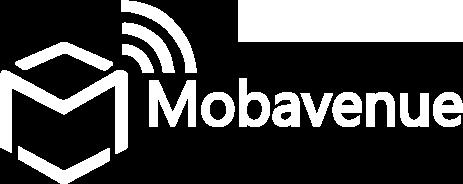













Source: KANTAR, IMAMI, Inc42 Analysis


Source: Inc42

The ecommerce market in India is expected to grow at 19% from 2024-2030
Increased Digital Adoption - The rapid adoption of digital technologies has significantly contributed to the rise of ecommerce in India. Improved internet penetration, driven by affordable mobile data plans and government initiatives like Digital India. Also, the widespread use of smartphones has further accelerated this shift, allowing users to shop, pay bills, and access financial services with just a few taps on their screens
Potential In
- India’s rural market holds immense potential, driven by a population that makes up 65% of the country's total population. While rural regions have increasing disposable incomes, and improving infrastructure enhances their purchasing power. Rising aspirations, fuelled by better access to education, digital connectivity, and financial inclusion, are shaping a new wave of rural consumers.
Of
Commerce - Logistics providers adopted last mile delivery solutions. Also, adding dark stores and micro fulfilment centres to complete orders within minutes. The combination of last-mile delivery innovations, localised inventory hubs, and advanced technology is setting new industry benchmarks for speed, efficiency, and customer satisfaction
Source: Inc42 Analysis, Secondary Sources
Note: Market opportunity represents total addressable market for D2C players in India

Source: Inc42, BCG, Secondary Sources












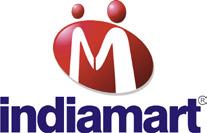











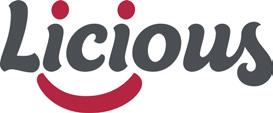












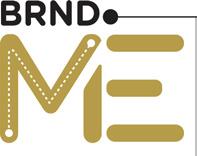






Source: Inc42
Note: This is not an exhaustive list

25
Total Unicorns


$88 Bn+


$32 Bn+
Total Funding
Source: Inc42



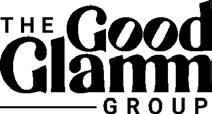
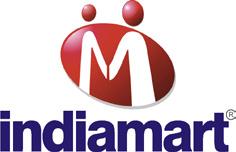













20
Total Soonicorns



$8.3 Bn+

$2.9 Bn+
Total Funding
Note: This is not an exhaustive list
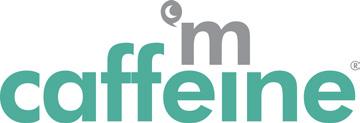














Total Funding Raised By Indian Ecommerce Startups $1.5 Bn+
Source: Inc42
YoY Decline In Late Stage Funding Amount -43%

The Most Funded Ecommerce Hub YoY Increase In Seed Stage Funding Amount
203+
203+
Funding Deals Recorded
Funding Deals Recorded

In 2024, funding amount in ecommerce startups decreased by 25% on a YoY basis
Source: Inc42

Source: Inc42
Note: Based on Indian startup funding deals recorded between 2014 and 2024

Seed Stage
Growth Stage
Late Stage
Source: Inc42
Note: Based on Indian startup funding deals recorded in 2024

Source: Inc42

Since 2021, Delhi NCR has outpaced Bengaluru in ecommerce funding deals, solidifying its position as a hub for D2C brands
Source: Inc42




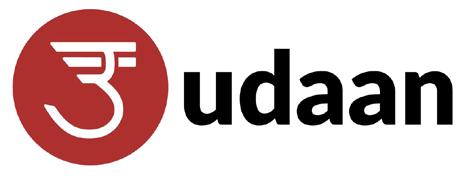




Source: Inc42
Note: This analysis is based on the startup funding deals recorded in Inc42's proprietary database.
Abu Dhabi Investment Authority, PremjiInvest
ChrysCapital, Motilal Oswal Alternates, Neo Group, A91 Partners
Peak XV Partners, MUFG Bank, Euclidean Capital
Navis Capital Partners, Dragon Fund
PremjiInvest, Elevation Capital, Matrix Partners, Accel Lighthouse Canton,
Stride Ventures, InnoVen Capital, Trifecta Capital
Verlinvest, Anicut Capital, A91 Partners
Merak Ventures
Panthera Growth Partners Z47, Kae Capital
Premji Invest, Epiq Capital, Edelweiss Discover Fund

Ecommerce startups see smaller ticket size rounds as investors take a conservative approach
Source: Inc42

Since 2014, D2C startups accounted the most number of M&A transactions
Source: Inc42

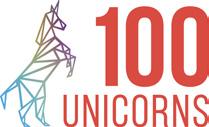

ControlZ, G.O.A.T Brand Labs, TagZ Foods
abCoffee, Redbasil, Bansiwala, Curlin
DaMENSCH, Blue Tokai Coffe,Sugar, Plum





Source: Inc42
Bizongo, Curefoods, Deep Rooted
Sugar Watchers, DealBasket, Adyaway
Zyod, Country Delight, Bombay Shaving Company
ShopKirana, Vaaree, Ximkart
Bambrew, ApnaKlub, Flash, Freakins
Fix My Curls, SuperBottoms, Solethreads
Comet, Wishlink, The Souled Store
Note: Note: This is not an exhaustive list or investor ranking of any kind | Investors have been listed alphabetically | Only deals recorded in Inc42’s database between 2014 to 2024 are considered for this analysis




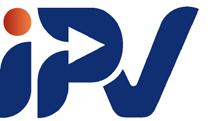






Source: Inc42
Newme, The Baker's Dozen, Supertails
TWF Flours, Fix My Curls, GIVA
Papa Pawsome, LetsDressUp, BEYOBO
The Betal Leaf, Relso, Freshleaf Teas
BeepKart, DealShare, Pepperfry
Deep Rooted, Wagr, Purplle
Eternz, Foxtale, ONWO
Kindlife, Deconstruct, Aastey
Clensta, HYPD Store, Sanfe
Bambrew, Eat Better, Woolly Farms
Note: Note: This is not an exhaustive list or investor ranking of any kind | Investors have been listed alphabetically | Only deals recorded in Inc42’s database between 2014 to 2024 are considered for this analysis


Comet, abCoffee, Venwiz
OfBusiness, CityMall, Mensa Brands
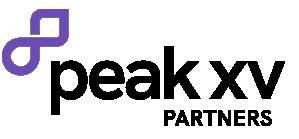


CarDekho, Moglix, Purplle
DaMENSCH, Mokobara, SuperBottoms
The Ayurveda Co, Pushp, Open Secret
Chaayos, Moglix, Flipkart

Boba Bhai, KARBAN Envirotech, LetsDressUp
BlueStone, Groyyo, Zyod, MyMuse

Source: Inc42
Tui Bon Natural, Relso, Fiona Diamonds
DaMENSCH, Fabriclore, Country Delight
Note: Note: This is not an exhaustive list or investor ranking of any kind | Investors have been listed alphabetically | Only deals recorded in Inc42’s database between 2014 to 2024 are considered for this analysis


Rise Of Unplanned Purchase: A study of Indian online shoppers in 2024 revealed that 75% of respondents reported an increase in impulsive purchases over the preceding six months. This suggests a shift in consumer behaviour, with a greater inclination towards spontaneous, unplanned purchases rather than pre-planned ones.
Instant Delivery In Grocery Over Next Day: 69% of Indian internet customers favour 10-minute quick delivery marketplaces over those that offer next-day delivery when they shop for groceries. The highest daily purchase frequency is for groceries, which is a glaring sign of Indian consumers' increasing desire for quick commerce.
Among Young indians: The adoption of quick commerce is most prevalent among the (18-35) demographic, with 60% of these users falling within the (18-25) age bracket. India houses over 600 Mn individuals aged (18-35), constituting 42% of the total population. This suggests a substantial addressable market for quick commerce enterprises.
Source: Datum Intelligence






For companies in the ecommerce and hyperlocal delivery sectors, the rising demand for rapid delivery—commonly referred to as ‘quick commerce’—is a trend that cannot be ignored. To remain competitive, businesses must assess and adapt to this evolving landscape.
With the quick commerce market projected to reach $40 Bn by 2030, growing at a CAGR of 37% from 2024, the sector is expanding at nearly twice the rate of the overall ecommerce industry, which stands at a 19% CAGR. The increasing adoption of quick commerce models by ecommerce marketplaces further reinforces its role as a key driver of future growth in Indian retail.

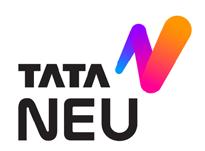
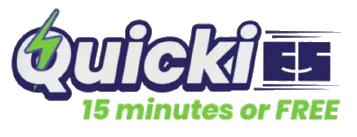

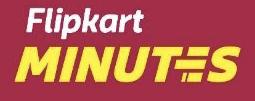
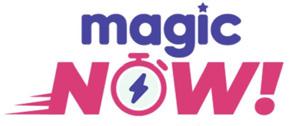


Quick Commerce Natives: Businesses designed from inception around ultra-fast delivery (typically within 30 to 60 minutes) as their core operational model and primary value proposition.




Quick Commerce Adopters: Established companies in traditional retail, ecommerce, or adjacent sectors that have integrated rapid delivery services into their existing business framework to enhance customer experience and operational efficiency.



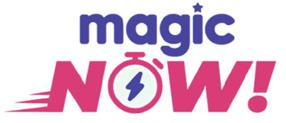





India’s quick commerce sector, driven by habit-forming consumer behaviour and aggressive expansion strategies, is still far from sustainable profitability. However, food delivery is emerging as the next big battleground for these platforms. Major players that initially focused on groceries — Blinkit (Bistro), Zepto (Zepto Cafe), and Swiggy Instamart (Snacc) — are now aggressively expanding into the space. At the same time, new entrants like Swish and Zing are betting exclusively on instant food delivery, signalling a major shift in the quick commerce playbook.
Source: Inc42 Analysis, Company Filings, Media Reports
Note: The AOV and total number of stores for publicly traded companies are derived from their Q3 FY25 lings. Pro tability is determined on the basis of annual pro ts. This is not an exhaustive list.


10-minute delivery service for groceries, personal care, and electronics
Delivery Model: Operates via hyperlocal fulfilment centers for rapid dispatch.
Target Consumers: Time-sensitive urban shoppers seeking instant access to essentials.
Market Positioning: Competes with Zepto, Blinkit, expanding Flipkart’s quick commerce footprint.
Impact: Reduces store visits, integrates convenience into daily shopping habits.

30-minute delivery for fashion and beauty products
Logistics Model: Uses partner stores and localised warehouses to speed up delivery.
Competitive Edge: Cuts waiting time, enhancing customer retention and engagement.
Expansion Plan: Launched in Bengaluru, with multi-city rollout planned.
Strategic Impact: Strengthens Myntra’s instant retail capabilities, setting it apart from traditional ecommerce.
Source: Inc42 Analysis and Secondary Sources


Expanded same-day and next-day delivery to 110+ cities, with 60% of orders delivered the next day
Supply Chain Expansion: Increased warehouses from 18 in FY21 to 44 in FY24, reducing order-to-delivery time by 18% and fulfilment costs by 19%.
Regional Fulfilment Shift: Transitioned from national to regional fulfilment, cutting split shipments by 24% and lowering air shipment costs.
AI Integration: Leveraging GenAI for customer experience enhancement, operational efficiency, and personalised engagement.

Available in select metros and tier 1 cities, improving speed and convenience for Prime subscribers
Network Expansion: Gradually scaling same-day delivery coverage, targeting high-demand regions.
Operational Efficiency: Uses local fulfilment centres, warehouse automation, and optimised delivery routes to enable faster dispatch and last-mile efficiency.
Product Coverage: Offers same-day delivery on essentials, electronics, fashion, and groceries, catering to instant shopping needs.
Source: Inc42 Analysis and Secondary Sources


Delhivery launched 2 hours delivery for D2C brands, retailers and ecommerce platform
Piloted in Bengaluru, already started processing 300 orders daily, showing strong demand
Plans to expand rapid store in Bengaluru, Hyderabad, Chennai, NCR, Mumbai, Pune, and Ahmedabad in upcoming months
Tailor-made fulfilment and storage solutions for retail, D2C brands, grocery, e-commerce, consumer goods, consumer electronics, and other industrial categories
32 fulfilment centres across India, transportation network comprising of over 1.3K+ runs daily, serviced through dedicated fleet-runs, provides unmatched capability to transport anywhere in India
It uses AI/ML systems to optimise routes, minimise location errors, and efficiently planning and managing inventory and order

Provides a range of delivery/courier services, from standard shipping to same day & next day delivery, tailored for D2C & E-commerce businesses
Delivers 1.5 Mn+ order per day with 2.5K+ cities presence.
Ensuring timely delivery with 99% TAT (turn around time) adherence with covering 18K+ pin code in the country
Source: Inc42 Analysis and Secondary Sources

Launched Shiprocket Quick for delivery in minutes with 24/7 services
It offers faster deliveries with price starting from Rs.10/Km with no surge fees facilitating last mile delivery for ecommerce business
Covers 19K+ pin codes nationwide with 1.5 lakhs businesses or sellers annually
Provides last mile delivery solution for ecommerce brands, It partners with quick commerce brands to deliver products across all local places
Delivers groceries, medicines, food, e-commerce packages through fully automated IoT and AI-enabled scooters which are low on maintenance and high on performance.
Currently over 21K+ Zypp EVs and pilots which facilitates the last mile delivery
Capacity of 2.5 Mn+ sq ft hub capacity on 850+ network routes
Provides services to 20K+ pin code with 150+ storage hubs which facilitates 3.5K+ service centres
Deliver 3 Mn+ shipments per day with 28K+ field service representatives working in the company
Source: Inc42 Analysis and Secondary Sources

Drones in logistics improves efficiency by reducing delivery times, optimising routes, and lowering fuel consumption, leading to significant cost savings
Drones enable faster deliveries, especially in congested urban areas and remote locations, by avoiding traffic and difficult terrains
Gartner predicts “that in 2026, more than one million drones will be carrying out retail deliveries”
Autonomous vehicles enhance logistics efficiency by automating tasks such as inventory tracking and goods movement, reducing human error, and improving operational productivity
By decreasing reliance on human drivers, autonomous vehicles lower operational costs, while advanced safety features minimise accident risks, ensuring reliable and secure deliveries
IoT and real-time tracking provide accurate, real-time updates on package location and status, improving visibility, reducing delivery-related inquiries
IoT-enabled smart locks allow secure package deliveries even in the recipient's absence, ensuring convenience and protection against theft or damage
In India, where over 64% of goods are transported by road, IoT’s real-time visibility minimises inefficiencies and builds consumer trust with reliable tracking
Source: Inc42 Analysis, Secondary Sources

Last-mile delivery accounts for over 50% of fulfilment costs and reverse logistics for time-sensitive products increases cost burdens.
Same-day delivery remains concentrated in metros, limiting reach in semi-urban areas
AI-driven route optimisation & order batching can lower delivery costs while maintaining speed.
Bundling incentives for larger orders can improve profitability.
Hybrid fulfilment models, integrating offline retail stores as hubs, can reduce expansion costs.
Regional warehouse investments are critical for scale.
Quick commerce relies on aggressive pricing, compressing margins.
Frequent low-batch deliveries increase carbon footprint.
Source: Inc42 Analysis
Tiered pricing strategies can offer premium fulfilment options while keeping standard deliveries affordable.
Bundling high-margin categories with quick deliveries can offset costs.
EV-based last-mile fleets and AI-driven route consolidation can improve sustainability.

AI-Led Supply Chain & Fulfilment Automation
AI-driven demand forecasting, warehouse automation, and inventory planning will reduce inefficiencies.
Dynamic dispatching & real-time tracking will optimise last-mile execution and reduce delivery costs.
Subscription-based express delivery models will expand, reducing reliance on per-order shipping fees.
AI-driven logistics pricing models will offer customised fulfilment tiers for different consumer segments.
Retail stores will act as micro-fulfilment hubs, reducing dependency on dedicated warehouses.
Store-to-door logistics will facilitate instant pick-up & dispatch for local customers, improving fulfilment flexibility.
Sustainability & Quick Commerce Logistics
The expansion of EV-based last-mile fleets will reduce long-term delivery costs and improve regulatory compliance.
AI-powered route optimisation will reduce wasted transit miles and carbon emissions.
Source: Inc42 Analysis


Over the past decade, ecommerce has rapidly evolved, giving rise to quick commerce (Q-commerce) — where delivery is no longer measured in days or hours but minutes. This shift has reshaped consumer expectations, making speed a critical differentiator for brands looking to drive loyalty and marketgrowth.
However, beyond logistics, AI-powered technologies are revolutionising how Q-commerce brands engage, personalise, and retain customers in an increasingly competitive market.
ISHANK JOSHI MD & CEO - Mobavenue
With over 750 Mn smartphone users and rising internet penetration, India has become a mobile-first economy. Consumers today demand instant gratification, not just for groceries but across categories like fashion, personal care, electronics, and
While speed remains essential, brands must go beyond rapid delivery to stand out. AI-driven advertising, hyperpersonalisation, and data-driven engagement have emerged as key levers to build brand affinity and retain customers.
Q-commerce brands face intense competition, where being the ‘fastest-first’ is not enough. AI-driven programmatic advertising is helping brands deliver hyper-relevant messaging across digital platforms to attract and retain high-value consumers.

By 2025, India will have 60 Mn Connected TV (CTV) households, presenting a massive opportunity for Q-commerce brands to tap into high-intent audiences through targeted advertising.
Promoting high-GMV products like premium electronics and smart home appliances to drive impulse purchases.
Pushing subscription-based models for grocery delivery, cloud kitchens, and exclusive memberships.
Targeting health-conscious consumers with ads for organic groceries, protein supplements, and smart wearables.
AI-powered predictive analytics helps brands match products with the right audience, maximising conversion rates and brand recall.
A study shows that 71% of consumers prefer personalised interactions — making AI-driven customisation essential for Q-commerce success.
AI-powered recommendation engines suggest products based on browsing and purchase history.
Dynamic ad creatives adjust in real-time based on user behaviour.
AI chatbots & voice assistants provide instant product recommendations and resolve queries.
With instant delivery reliant on hyperlocal fulfilment models, brands must adopt location-based marketing strategies to drive relevance and engagement.
Geo-targeted promotions highlighting nearby dark stores and serviceable areas.
Localised Digital OOH & traditional OOH ads in high-footfall areas.
Time-sensitive, festival-based offers to boost immediate conversions.

Machine learning-driven geotargeting ensures ads reach the right audience at the right time, enhancing brand visibility and sales.
Despite high engagement, many consumers browse without purchasing. AI-driven retargeting is crucial to bringing high-intent users back into the buying funnel.
Personalised ads for wishlist users who abandoned checkout.
Influencer demo videos for high-value products like coffee machines or smart wearables.
Festive retargeting campaigns for seasonal shopping like Diwali decor and Christmas gifts
By leveraging real-time data and dynamic creatives, brands can recover lost sales and boost GMV.
The future of Q-commerce goes beyond speed — it hinges on a deep understanding of consumers and meaningful engagement. AI is at the core of this transformation, enabling brands to personalise experiences, drive customer retention, and optimise operations. AI-driven loyalty programs are enhancing consumer stickiness by offering personalised rewards, while voice and AI-powered search are streamlining shopping journeys, making product discovery seamless. Additionally, predictive demand forecasting is helping brands optimise inventory and reduce wastage, ensuring efficient supply chain management.
As India’s digital economy expands, AI is no longer just an advantage but a necessity for Q-commerce brands looking to stay ahead. Hyperlocal engagement, intelligent retargeting, and predictive analytics are redefining consumer interactions, setting the stage for a more data-driven and personalised shopping experience. For Q-commerce players, the message is clear — adopting AI-powered strategies is not just a choice but the key to long-term success in an increasingly competitive market.



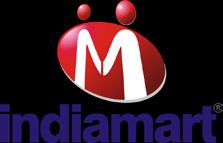

Source: Inc42 analysis, NSE
Note: The graph here represents year-to-date (YTD) stock price, up to 21 March 2025.

Since 2014, Inc42 has been go to source for identifying Indian startups transforming industries and shaping society.
“State Of Indian Ecommerce H1 2025” represents the Inc42 team’s endeavor to chart and comprehend the evolution of the Indian startup revolution from 2014 to 2024.
Quick Commerce: It refers to the rapid fulfilment and delivery of online orders, typically within a few hours or the same day. Enabled by hyperlocal logistics, dark stores, and advanced supply chain technology
Overall data in this report is from 2014 to 2024, unless mentioned otherwise
Seed stage: Startup at angel or seed stage
Growth stage: Startups at Series A and B funding stage
Late stage: Startups at Series C or above funding stage
Unicorn refers to any digital / tech company valued at or above $1 Bn or have touched this valuation once in their business lifecycle.
A soonicorn is any public or private digital/tech company valued at or above $200 Mn.
Our database enrichments and corrections are done on a regular basis, therefore slight variations in funding-related data compared to previously released reports may exist


Inc42 is India’s largest tech media & information platform on a mission to build & serve India’s tech, startup & internet economy.
From breaking the latest news to discovering the hottest startups, from spotting upcoming trends to simplifying complex concepts, we cover everything tech in India’s internet economy.
Born in January 2015, Inc42 has become the leading source for news & analysis on India’s rapidly growing tech, startup & internet economy. Inc42, with over 40,000+ published stories, 100+ research reports, 120+ conferences & events & having featured 1000s of entrepreneurs, now reaches over 25 Mn+ tech leaders & professionals every month. Contact: editor@inc42.com www.inc42.com
ANALYST
SIDDHANT UTTAM
ANUSHKA SHARMA SARFAS EK DESIGNER
Inc42 Media, 59/16, 4th Floor, Jujhar Tower, RD Marg, Kalkaji, New Delhi, Delhi 110019 ADDRESS

The data provided in this report has been obtained from public and private sources. We have made every attempt to ensure that the information presented in this report is accurate and free from any discrepancies. Ideope Media Pvt Ltd, the parent company of Inc42 Media and Inc42 DataLabs, is not responsible for any inaccuracy in the information presented or for any damages caused by the use of information provided in this report. In case of any discrepancy or errors in the data, you can contact us at editor@inc42.com and we will try our best to update the information in the digital version of the report. We are constantly updating our database of startups due to new person using or relying on any information in this publication.
This report has been prepared in good faith on the basis of information available at the date of publication without any independent verification. Ideope Media Pvt. Ltd. does not guarantee the accuracy, reliability or completeness of the information in this publication. Readers are responsible for assessing the relevance and accuracy of the content of this publication. While this report talks about various individuals and institutions, Ideope Media Pvt. Ltd. will not be liable for any loss, damage, cost or expense incurred or arising by reason of anyperson using or relying on any information in this publication.
This document makes descriptive reference to trademarks that may be owned by others. The use of such trademarks herein is not an assertion of ownership of such trademarks by Ideope Media Pvt Ltd and is not intended to represent or imply the existence of an association between Ideope Media Pvt Ltd and the lawful owners of such trademarks. Information regarding third-party products, services and organisations was obtained from publicly available sources, and Ideope Media Pvt. Ltd. cannot confirm the accuracy or reliability of such sources or information. Its inclusion does not imply an endorsement by or of any third party. The views and opinions in this report should not be viewed as professional advice with respect to your business.

